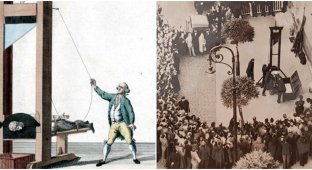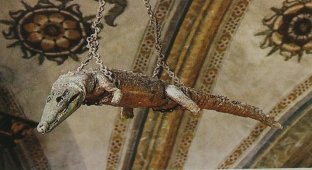Ancient guillotine of the sanctuary of Caravaggio (9 photos)
It is believed that the use of the guillotine was proposed by Dr. Joseph Guillotin in 1791 as a humane method of execution, since others, with insufficient skill of the executioner, caused long and painful agony. 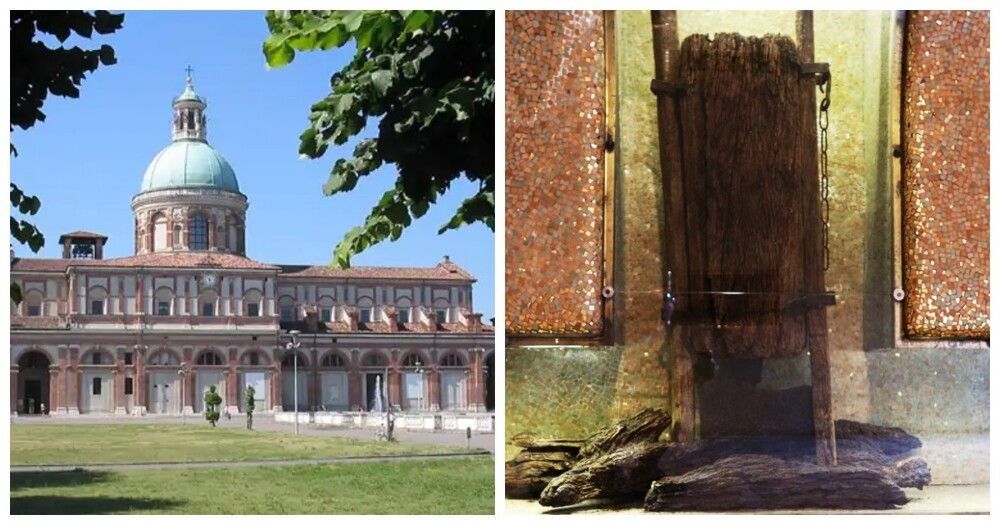
But long before the activity during the French Revolution, this reliable device was already in use. In Ireland and Scotland as the Scottish Maid, in the same France under the name Furniture of Justice. In Italy, the killing machine bore the sublime name of mandala. 
Doctor Guillotin
And in one of the old cellars in Italy there is a guillotine that predates the French Revolution by more than two centuries. 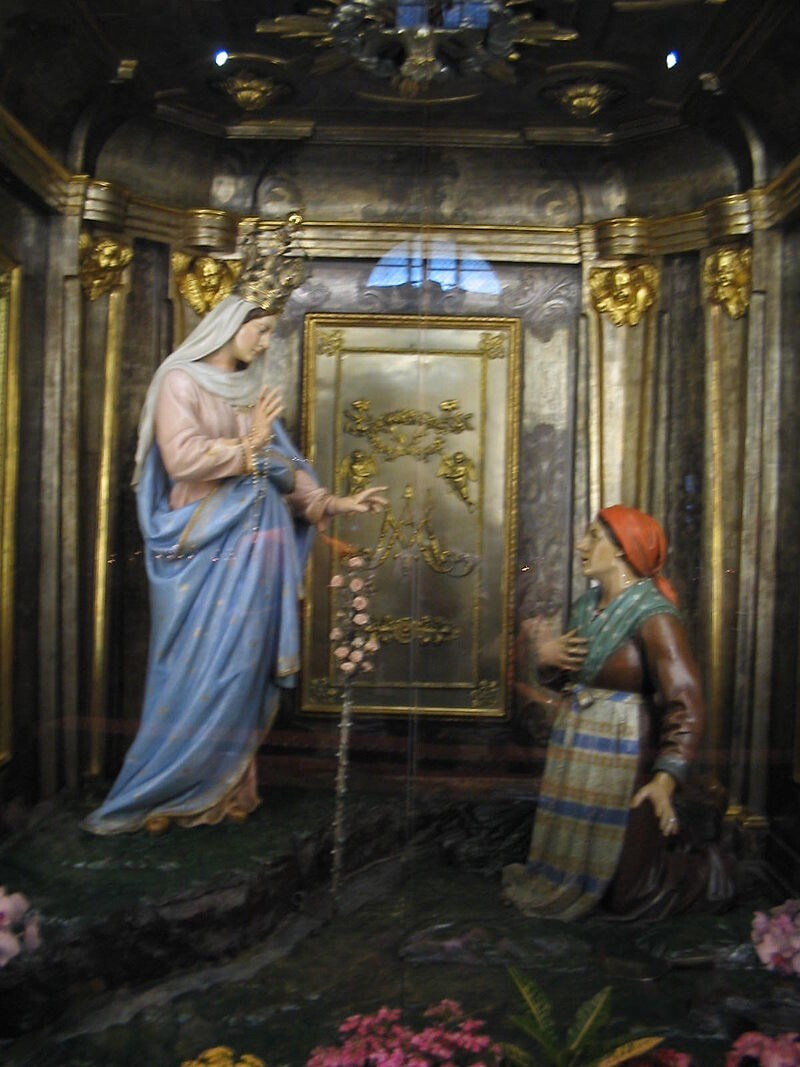
Appearance of the Blessed Virgin Mary in Caravaggio, Lombardy, Italy on May 26, 1432 to the peasant woman Giovannetta Varoli
In the village of Caravaggio there is a sanctuary dedicated to Santa Maria del Fonte (St. Mary of the Spring). According to legend, she appeared to a shepherdess on May 26, 1432 in this very place. The sanctuary consists of a monumental church surrounded by landscaped gardens and four symmetrical porticoes. 
At the place where the peasant woman met the Madonna, a sanctuary was built - a sanctuary
Beneath this huge structure is a corridor that runs the entire width of the church. The corridor is divided into five sections (cells). If you approach it from the southwestern side, then in the first cell there is a fountain connected to the so-called Sacred Spring - a source whose water is considered blessed. The second cell is unremarkable and simply connects the first with the third, which contains two mosaics. The fourth section is also connecting. And in the last one, on the north-eastern side of the sanctuary, there is a niche with a primitive guillotine. 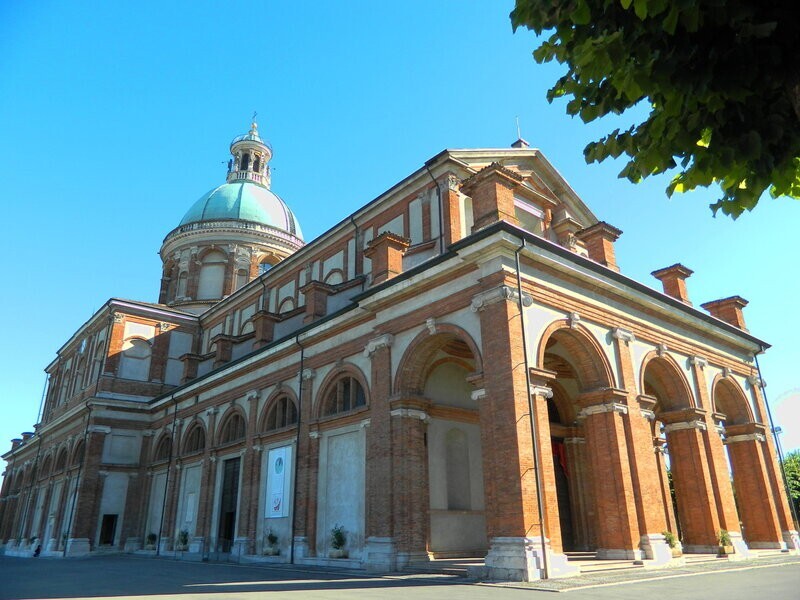
Legend has it that in 1520 a robber was captured and sentenced to capital punishment. On the verge of death, this man repented and asked Mary for forgiveness. As a result, the guillotine “refused” to behead him, sparing his life. This is one of several supposed miracles associated with St. Mary, and since that day this instrument of death has been kept in the sanctuary as a relic. 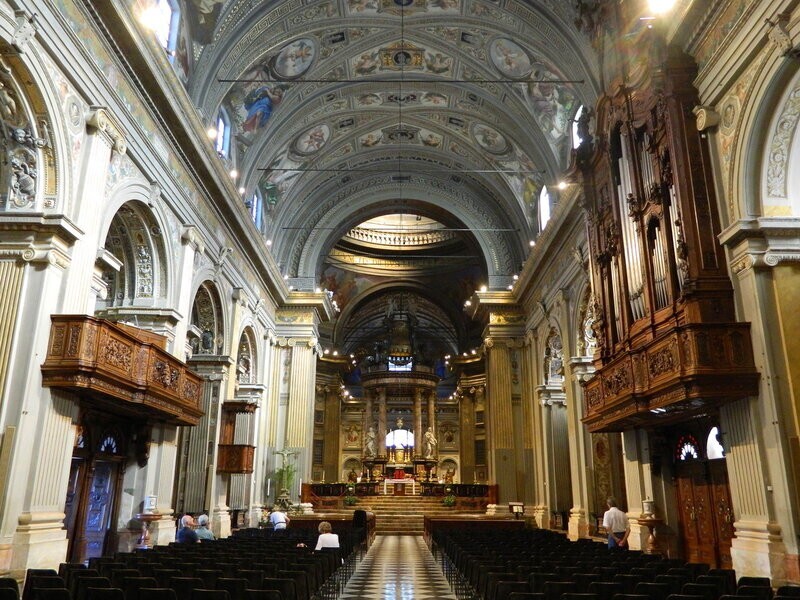
Church inside
The guillotine as we know it today appeared during the French Revolution. Compared to its French counterpart, this guillotine is small and primitive. 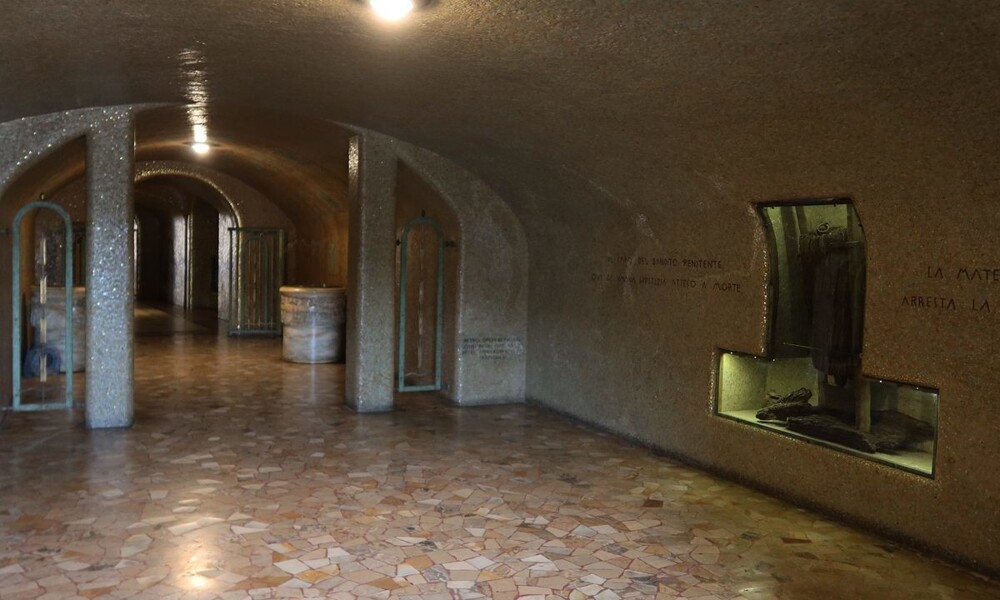
But, of course, this is a tool designed for decapitation. The blade is secured under a heavy log, which is held above the condemned person's head using two metal rings. When the log was released, under its weight the blade slid along the guides, and the blow decapitated the condemned man. 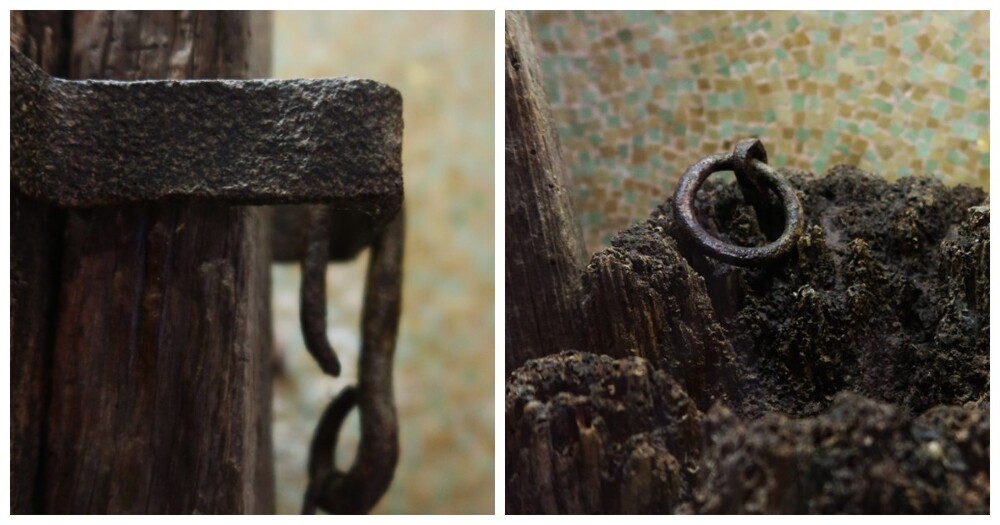
To the left of the guillotine there is an inscription: “Above the head of a repentant bandit awaiting death by human justice.” On the right is another inscription: “The maternal favor of the Virgin Mary stops the deadly ax on May 26, 1520.” 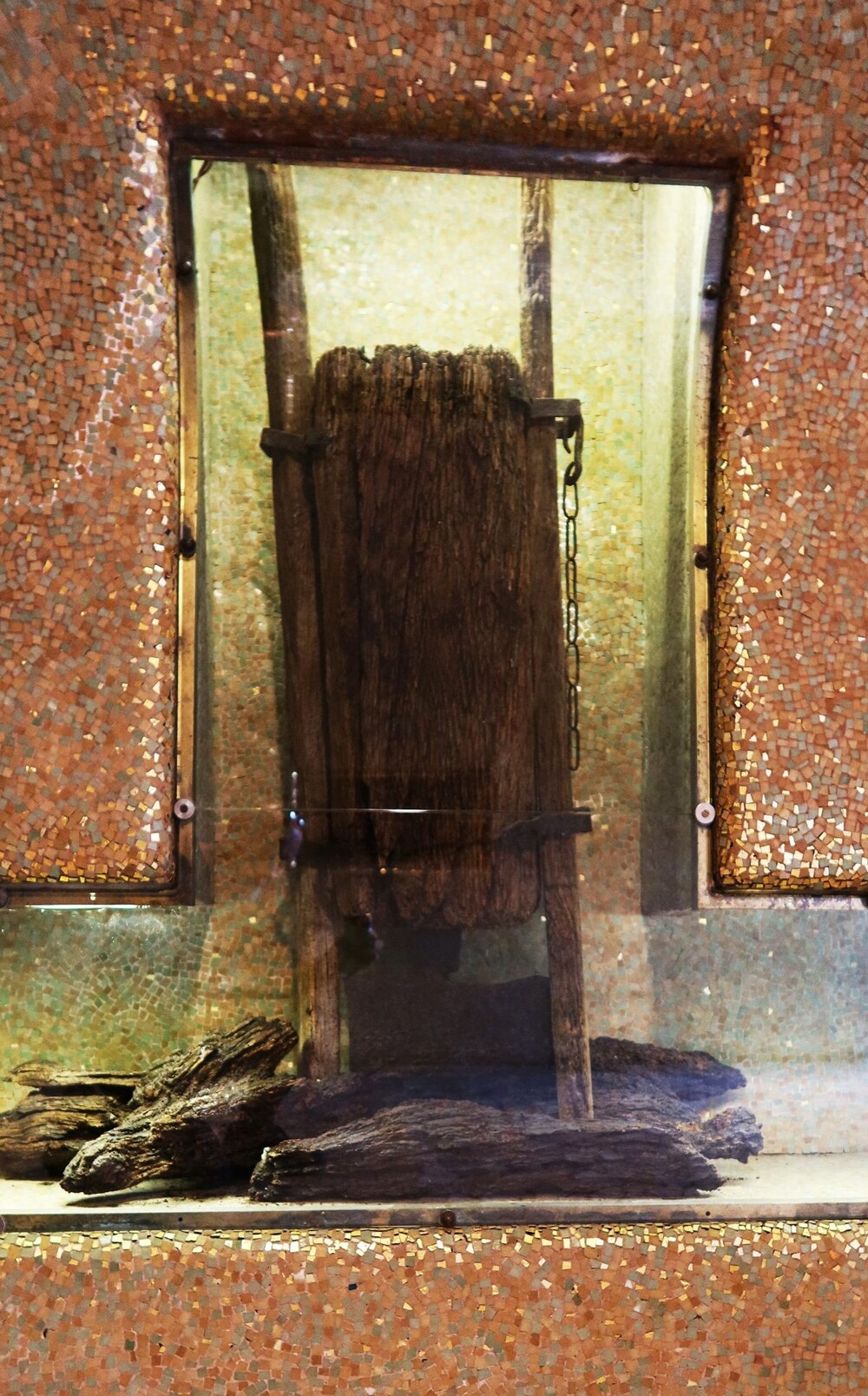
Ancient guillotine revered as a shrine












